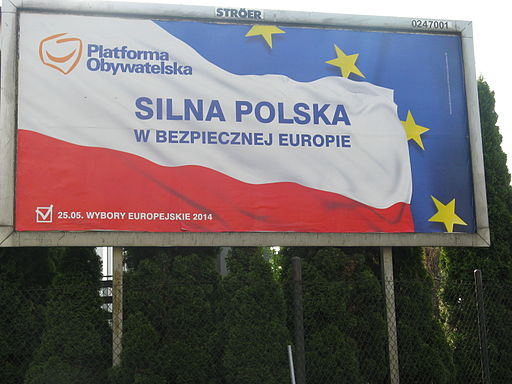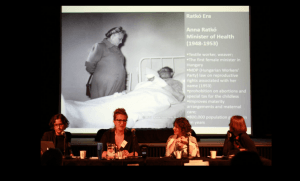
Photo: Lukasz2 via Wikicommons
Seán Hanley looks ahead to the upcoming European elections and assesses what they may tell us about the enduring differences between voters and parties in Western and Eastern Europe.
The elections to the European Parliament which take place across the EU’s 28 member states between 22 and 25 May are widely seen a series of national contests, which voters use to vent their frustration and give incumbent and established parties a good kicking. Newspaper leader writers and think-tankers got this story and have been working overtime to tell us about a rising tide of populism driven by a range of non-standard protest parties.
The conventional wisdom is that the ‘populist threat’ is all eurosceptic (and usually of a right-wing persuasion) although in some cases the ‘eurosceptic surge’ is clearly a matter of whipping together familiar narrative than careful analysis.
But, as a simultaneous EU-wide poll using similar (PR-based) electoral systems, the EP elections also provide a rough and ready yardstick of Europe-wide political trends, ably tracked by the LSE-based Pollwatch 2014 and others.
And, for those interested in comparison and convergence of the two halves of a once divided continent, they a window into the political differences and similarities between the ‘old’ pre-2004 of Western and Southern Europe and the newer members from Central and Eastern Europe (now including Croatia which joined in 2013). (more…)
Filed under ECR, EU politics, euroscepticism, Finland, Hungary, ODS, Poland, political parties, populism, W European politics
Tags: ALDE, Andrej Babiš, Bulgaria, Central and Eastern Europe, Christian Democracy, Civic Platform, Croatia, Eastern Europe, ECR, EPP, Euroelections, euroscepticism, Fidesz, Jozef Viskupič, Law and Justice, LMP, Mirela Holy, ods, OĽaNO, Poland, populism, Slovene National Party, Slovenia
2 Comments »
 Close
Close



